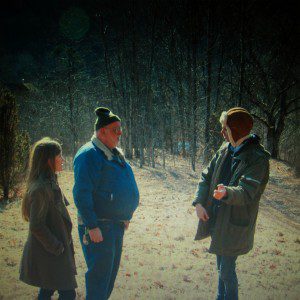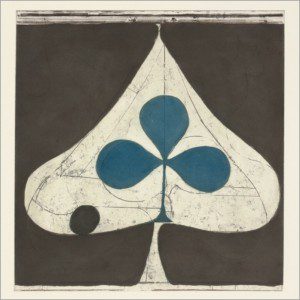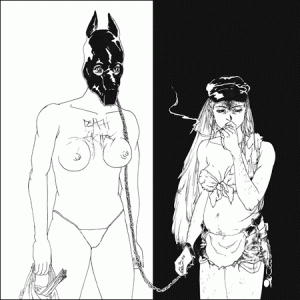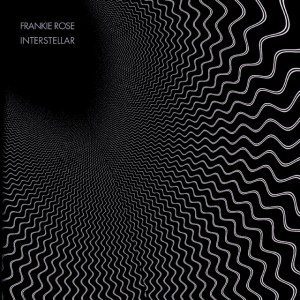
Oh, the treacherous end-of-year best-of list. What makes the cut, and what doesn’t, is always going to stir up controversy. The tradition endures despite its shortcomings, the biggest of which being that it’s a bit arbitrary and trite to say that something is “the best” and compare it side-by-side with things that may be completely different; often the only common denominator amongst the albums on these lists are that they contain music, period.
That being said, I actually enjoy skimming through the majority of them; I always “discover” a record I missed in the previous months, maybe two or three, maybe more. It’s impossible to hear everything, after all, so it stands to reason that if you trust the source of the list then the list might reward you.
As for me, I often make my own list (usually before reading others) and I base it only on one thing – what albums resonated with me most? It’s less about what I deem “best” and what was most meaningful or provocative or simply played over and over and over again without me really tiring of it. Albums I can go back to next year or the year after and say – “YES, that was my 2012”. The following records go beyond those prerequisites, and are ones that I hope will both prove to be timeless and yet also will transport me back to this time in my life.
 Dirty Projectors – Swing Lo Magellan
Dirty Projectors – Swing Lo MagellanIn the past I’ve been annoyed by Dave Longstreth’s maniacal attention to detail and perfection, even as much as I loved many of his records. Part of the reason for this is that I feel like he’s bragging with every turn, saying, “Look at me! Look at my genius! Look what I can do!” and in a way it’s also that his headiness around composing and inspiration is almost too daunting. But Dirty Projectors have worn me down with their undeniable originality and lush arrangements and impossibly gorgeous female vocal virtuosity. Whereas the tracks on 2009’s equally brilliant Bitte Orca meandered and shifted arrangements abruptly, some of Swing Lo Magellan’s magic lies in the actual catchiness and accessibility of these tracks. They are a little less mathematical and so slightly more vivid. Because the album eschews theme in favor of Longstreth’s personal stories and feelings, it resonates in ways that past albums haven’t approached, from a completely different angle. Plus, the first time I listened to this record I was in a blanket fort.
 Godspeed You! Black Emperor – ‘Allelujah! Don’t Bend! Ascend!
Godspeed You! Black Emperor – ‘Allelujah! Don’t Bend! Ascend!The exclamation point, usually appearing after an interjection or strong declarative statement, is used in grammar to indicate strong feelings or high volume. Never, then, has such rampant use of the punctuation mark been so appropriate than in the release of Godspeed You! Black Emperor’s fourth studio album and its first in ten years. The core members of the revolving collective reunited to tour in 2010 after a seven year hiatus, so it’s appropriate that the release contains two reworked versions of unreleased songs that saw a lot of live play. In every towering movement, GY!BE proves that they haven’t lost that which makes their music essential – the droning, see-sawing build-ups to explosive orchestration, anarchistic echoes in both sonic spirit and whatever sparse voices can be heard around the din, an intense sense of mood and purpose. Godspeed is a band that means a lot to many, and it might have been easy to take advantage of that and throw together something trite that didn’t add much to a dialogue that had ended in ellipses in 2003. But ‘Allelujah! feels entirely right in every way, as though it was made alongside the band’s previous records. It cements Godspeed as the singular purveyor of such darkly cathartic and moving pieces. And I’m pleased to say that the live show holds up, too – it had me crying actual tears more than once. Strong feelings and high volume, indeed.
 Grizzly Bear – Shields
Grizzly Bear – ShieldsListening to Shields had a peculiar effect on me. It was like seeing someone for the first time in a long a time that I used to date when we were both very young, and realizing that they’d grown up. And knowing that it hadn’t happened suddenly, but that the person’s absence from my life had made it seem that way, and wondering if I’d grown up, too. Horn of Plenty and Yellow House may represent the Grizzly Bear I fell in love with, and Veckatimest represents a period when the band meant less to me, when I fell out of touch with what they were doing. But Shields has an incredible power behind it, one that I recognize and respect and receive with a knowing warmth. It manages majesty while showing restraint. It’s measured and beautiful in an almost mournful way that reins in the poppier tones on tracks like “Gun-Shy” “A Simple Answer” and “Yet Again”. After a controversial article in New York Magazine used Grizzly Bear as an example of the impossible task indie bands face at making a living doing what they love, Shields proves that there’s something to be said for just making art the way you think is best, regardless of what success it brings.
 Chromatics – Kill For Love
Chromatics – Kill For LoveIt was a banner year for Johnny Jewel. The songs featured in last year’s indie blockbuster Drive helped bring his work to a wider audience and set the stage for what would become the opus that is Kill For Love. First came the tour-de-force Symmetry, an ambitious “electro-noir” faux soundtrack project released with Nat Walker. The thirty-seven tracks on that album, which featured collaborations with Ruth Radelet, were in a way a precursor to the studied moods and dark nuances that persist on Kill For Love, particularly in its instrumental tracks. But those tracks act as tendons, both vulnerable and powerful, for the real muscle – like “At Your Door” “Lady” and “A Matter Of Time” in which Radelet’s haunting, detached desperation are both frightening and sexy at once. And then, of course, there’s the glittering, anthemic title track – nearly four minutes of ecstatic synths and lyrics like “I drank the water and I felt alright, I took a pill almost every night, In my mind I was waiting for change while the world just stayed the same”. It would practically hold up in a courtroom if, in fact you did kill someone in the name of love.
 Ariel Pink’s Haunted Graffiti – Mature Themes
Ariel Pink’s Haunted Graffiti – Mature ThemesLo-fi recording savant Ariel Pink has been working at making a name for himself for almost a decade, releasing a handful records on Animal Collective’s Paw Tracks imprint. But in 2010, backed by 4AD and with high-quality studio recording at his disposal, Pink released Before Today and the world finally took notice. Previously renowned for his slipshod home-recording techniques, odd sense of humor and quirky compositions, Before Today signified to Pink’s audience that he was first and foremost a songwriter with a knack for thinking outside the box. Pink’s most recent release, Mature Themes, offers a convergence of these two realities; bizarro arrangements, sound effects and subject matter abound, but are anchored by authentic psychedelic flair. The record’s underlying ideas about sexuality seem ‘mature’ by any censor’s standard but are here addressed with biting irony, approached the way a twelve-year-old boy might make a joke about, well… schnitzel. That’s the genius of Ariel Pink – one is never sure whether he’s providing valuable social commentary or just poking fun at the fact that he’s in a position to do so. He sings “I’m just a rock n’ roller from Beverly Hills” and that is, perhaps, the only way to describe the enigma of his work in any succinct manner. But Pink never forgets to throw props to the acts that inspired the creation of this record and everything that came before it, having brought attention to “father of home recording” R. Stevie Moore through his own enthusiasm for Moore’s work, and here championing brothers Donnie and Joe Emerson, whose transcendent lovesong “Baby” Pink covers in collaboration with Dam-Funk to close out the record.
 How To Dress Well – Total Loss
How To Dress Well – Total LossTom Krell’s first proper record under the moniker How To Dress Well is a sprawling but sparse meditation on human relationships, namely on the ways that they can support us or disappoint us. There are two elements at work that make Krell’s work so remarkable. First, there’s Krell’s heartbreaking falsetto and the passions inherent in his pushing it to its most yearning extremes, helped by his earnest lyrics. And then, of course, there’s the production – the hue and texture of the music that provides the backdrop for those heart-rending vocals. Whether Krell is letting thunderous white noise roll over ethereal R&B hooks, distorting distantly plucked harp, utilizing grandiose samples, or melding soaring strings and churning beats, he does it all with grace and clarity. The static and crackle that coated 2010’s Love Remains have melted away, and though there’s plenty of HTDW’s trademark reverb on this record, Total Loss as a whole feels more direct and even beautiful for it, sparing none of the atmosphere. Krell has managed to essentialize what it is that makes his music so moving and with Total Loss has found a way to distill and perfect it in this gem of a release.
 Goat – World Music
Goat – World MusicLabeling something “World Music” is kind of a bizarre practice; after all, the entirety of music is composed on planet Earth – at least, as far as we know. Goat, for instance, are apparently from a tiny village in Sweden founded by a voodoo-practicing occultist and populated by past incarnations of the band currently touring being this, the first album the band has ever recorded. It contains the kind outrageous and well-traveled psychedelica that actually makes joining a cult, or a commune, or a collective of mysterious musicians, or whatever, seem like a good idea. The members pointedly keep their identities shadowy, part a comment on the fleeting nature of celebrity in modern society but also as a means of forcing focus on the music itself, though it would be hard to ignore the joyous intensity and effortless virtuosity that infuses every track even if you knew who was playing. The anonymous female vocalist on these jams is what sends them over the edge; in an era where wispy or witch-like feminine affectation is rampant, the songstress in Goat offers urgent chants, wailing until her voice breaks, her singing sometimes frenzied, sometimes devotional, sometimes both. Yes, there are more than a few nods to goat worship, but there are almost as many to disco. At its core, World Music is about carefree hedonism, about the act of devouring disparate influences and letting them wash over the senses, about auditory transcendence and the trances it induces.
 Merchandise – Children Of Desire
Merchandise – Children Of DesireThere are two things that stopped this release from catapulting to the top of the list. First, it’s technically not a full-length record, although as EPs go it definitely plays longer than most. Second and more importantly, Merchandise let me down with their lifeless (read: drummer-less) live sets I saw this year. But I’m hoping that they’ll pull it together and blow my socks off eventually, which shouldn’t be very hard since these songs have indelibly etched their mark on my heart. The earnest crooning of Carson Cox has drawn comparisons to Morrissey – not much of a leap, especially when he’s singing the lines “Oh I fell in love again. You know, the kind that’s like quicksand. I guess I didn’t understand. I just like to lose my head”. He’s also got a bit of that sardonic sneer that Moz is known for, most evident during “In Nightmare Room” with its caustic guitar and repeated line “I kiss your mouth and your face just disappears”. But Merchandise don’t simply mimic influences; the sound at which they’ve arrived is completely contemporary and difficult to categorize. The most telling lyric is the opening line of “Become What You Are” an elegant kiss-off to inauthentic appropriation that evolves over the course of ten minutes from pop gem to kinetic, disorderly jangle. Cox sings “Now the music’s started, I realized it was all a lie -the guitars were ringing out last year’s punk” and a moment later, flippantly waves it all away: “It don’t really matter what I say. You’re just gonna twist it anyway. Did you even listen to my words? You just like to memorize the chorus”. They’re a band wholly committed to the integrity of becoming, of shucking off old skins and processing the experience.
 Bat For Lashes – The Haunted Man
Bat For Lashes – The Haunted ManNatasha Khan becomes, with each album she releases, more and more essential to music at large, and with The Haunted Man she proves it song for song, from spectral lead single “Laura” to the radiating all-male choir on the album’s title track. Khan suffered intense writer’s block at the onset of writing the album, calling on Radiohead’s Thom Yorke for advice, taking dance classes, and finally finding inspiration in life drawing and movies. As a result, the album is infused with a reserved theatricality that’s more finely grained and intensely focused than much of her previous work. Khan’s voice rises and glides powerfully over her arrangements, which even at their most orchestral remain concise and unfettered by extravagant ornamentation. The power and restraint that play out on this album edge it out over those of her contemporaries and solidify her spot in a canon of greats, heir to a particular throne inhabited by such enigmatic women as PJ Harvey, Kate Bush and Bjork.
 Flying Lotus – Until The Quiet Comes
Flying Lotus – Until The Quiet ComesThough many predicted that the end of the world would coincide with the end of the Mayan calendar, as it turned out December 21st, 2012 was just an ordinary day. But if the apocalypse had come, there would be no more fitting soundtrack than the work of Steven Ellison, otherwise known as Flying Lotus. Appropriately dark and dream-like, Ellison here eschews the density that made 2010’s Cosmogramma such a complex listen, revisiting free jazz techniques and traditional African rhythms. As the album progresses, a sense of journey unfolds, tied together by live bass from collaborator Thundercat. Each track is infused with a sort of jittery calm, fluttering and lilting and filled with epiphany. Guest vocals from the likes of Erykah Badu and Thom Yorke are treated as no more than additional instrumentation; Ellison is possessed with a sense of purpose and ownership to the music he’s carefully constructed. In these tones, one can see whole worlds crumble. It’s not unlike an out-of-body experience, really, one in which to listen is to drift outside oneself. Ellison has proven that he is a serious producer, interested in growing and exploring subtle musical shifts rather than cashing in on one particular sound and driving it into the ground. Until The Quiet Comes provides examples of the loudest kind of quiet one can experience, unfolding as beautifully and austerely as anything Flying Lotus has ever released.






















